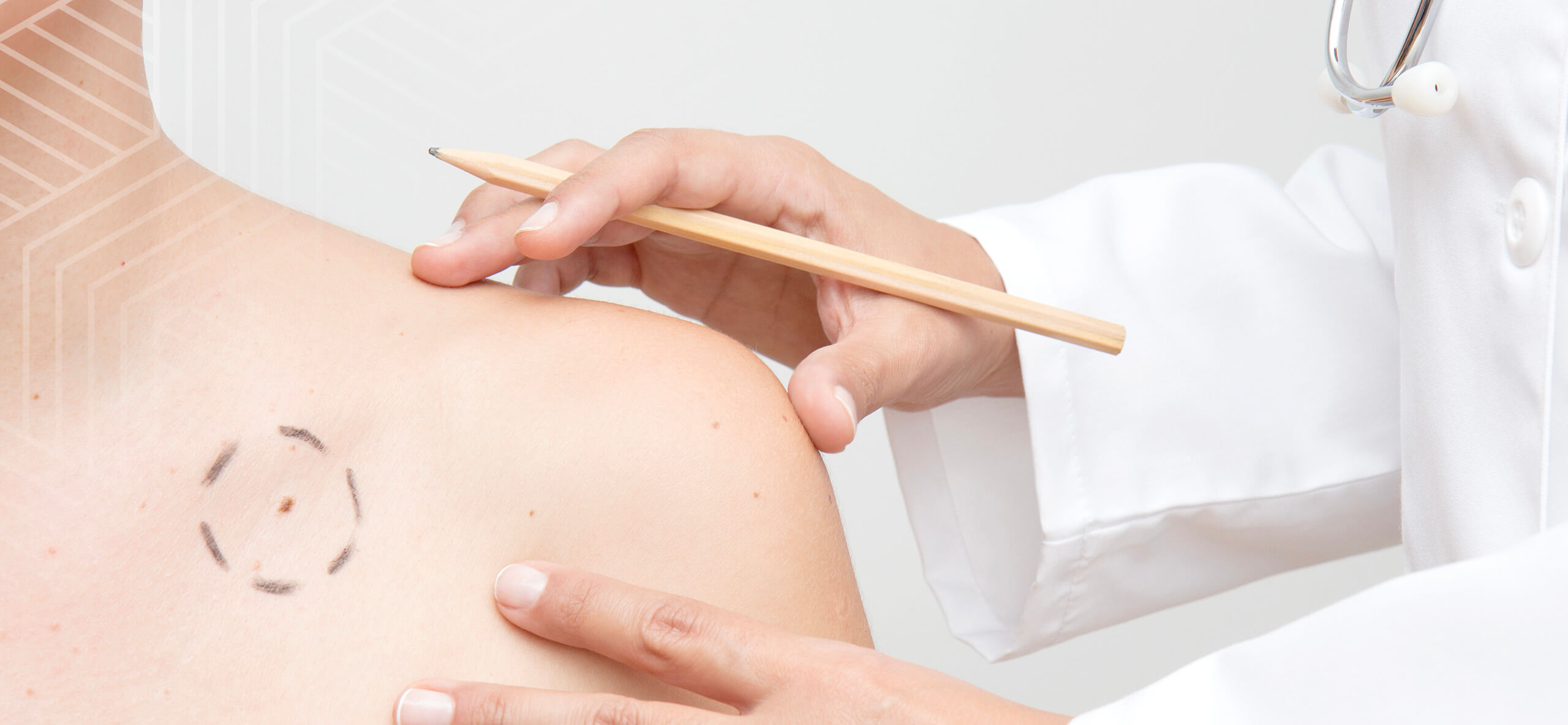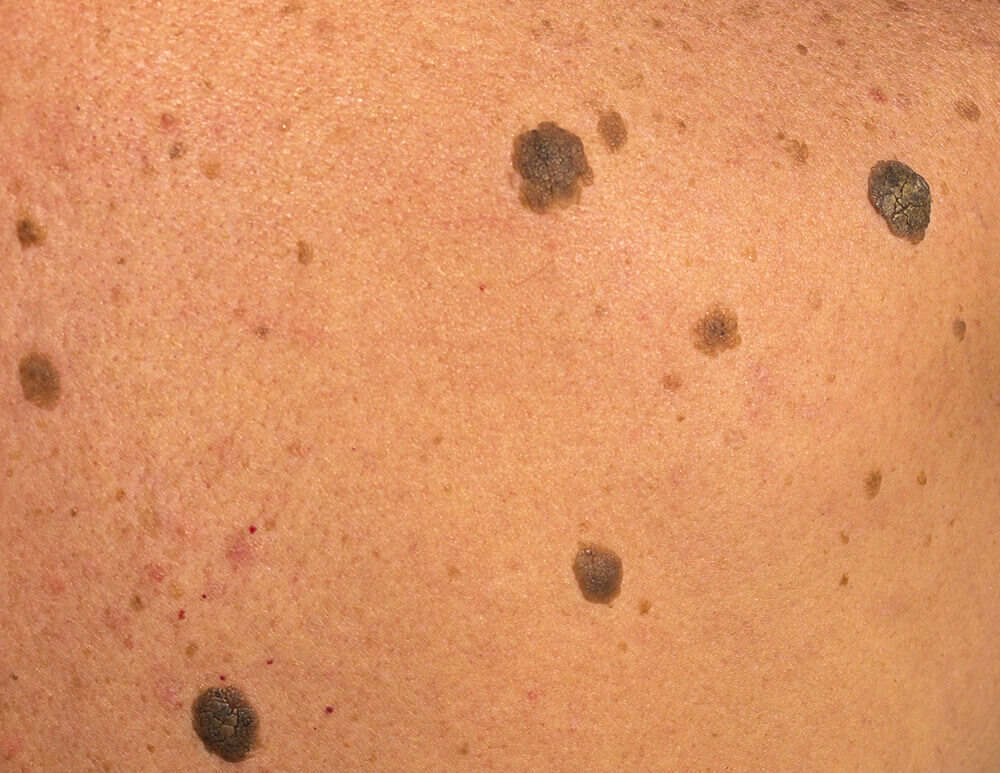Mole removal surgery with Dr Kian
Moles and other skin lesions can be removed for a variety of reasons including to rule out skin cancer or for cosmetic reasons. If you are worried about a mole or you think it has changed, it is always advisable to get it checked. Dr Kian has experience in skin cancer surgery as a Consultant Plastic Surgeon in the NHS. Dr Kian specialises in safe removal of a variety of skin lesions (according to national expert guidelines) with good cosmetic results, including:
- Skin cancer, including malignant melanoma (MM), squamous cell carcinoma (SCC) & basal cell carcinoma (BCC, also called rodent ulcers)
- Pre-malignant lesions
- Dysplastic moles
- Benign moles
- Skin tags
- Cysts
- Lipomas
- Seborrhoeic keratosis/warts
Dr Kian would always advise for any skin lesion removed to be sent for histological analysis (examined microscopically by a pathologist) to ensure that a skin cancer diagnosis is made or ruled out, and appropriate further treatment is given to you if needed.
- Performed by Dr Kian, a UK-trained Consultant Plastic Surgeon who is trained in skin cancer & reconstructive plastic surgery techniques
- Member of the Skin Cancer Multi-Disciplinary Team (MDT) in the NHS providing treatment for skin cancer patients
- Trained in dermatoscopy for detailed examination of skin lesions
- Experience in different techniques of skin surgery including full excision, shave excision, biopsies, local flaps & skin graft reconstruction techniques
- Consultation and full aftercare provided by Dr Kian
You may want removal of your mole or skin lesion for a variety of lesions, including:
- to rule out , diagnose or treat skin cancer
- it is causing physical symptoms such as bleeding, itching, pain or you catch it during certain activities such as shaving or brushing your hair
- cosmetic reasons, including effects on self-esteem & confidence due to the mole being in a prominent location
During your consultation, Dr Kian will be able to perform dermatoscopic examination of your mole and you will be able to discuss your concerns. Dr Kian will discuss your options depending on the type of skin lesion you have, and this includes having a biopsy, full excision or shave excision. If you require reconstruction, as a plastic surgeon Dr Kian will be able to offer this at the same time and this will include local flap, full-thickness skin grafts and split-thickness skin grafts. He will also explain what sort of scars to expect and how long it will take to recover from surgery.
Dr Kian has had extensive training using various different techniques of skin surgery and reconstructive procedures. He will be able to tailor your procedure to ensure that you achieve the best cosmetic results while ensuring that your skin lesion is removed safely.














